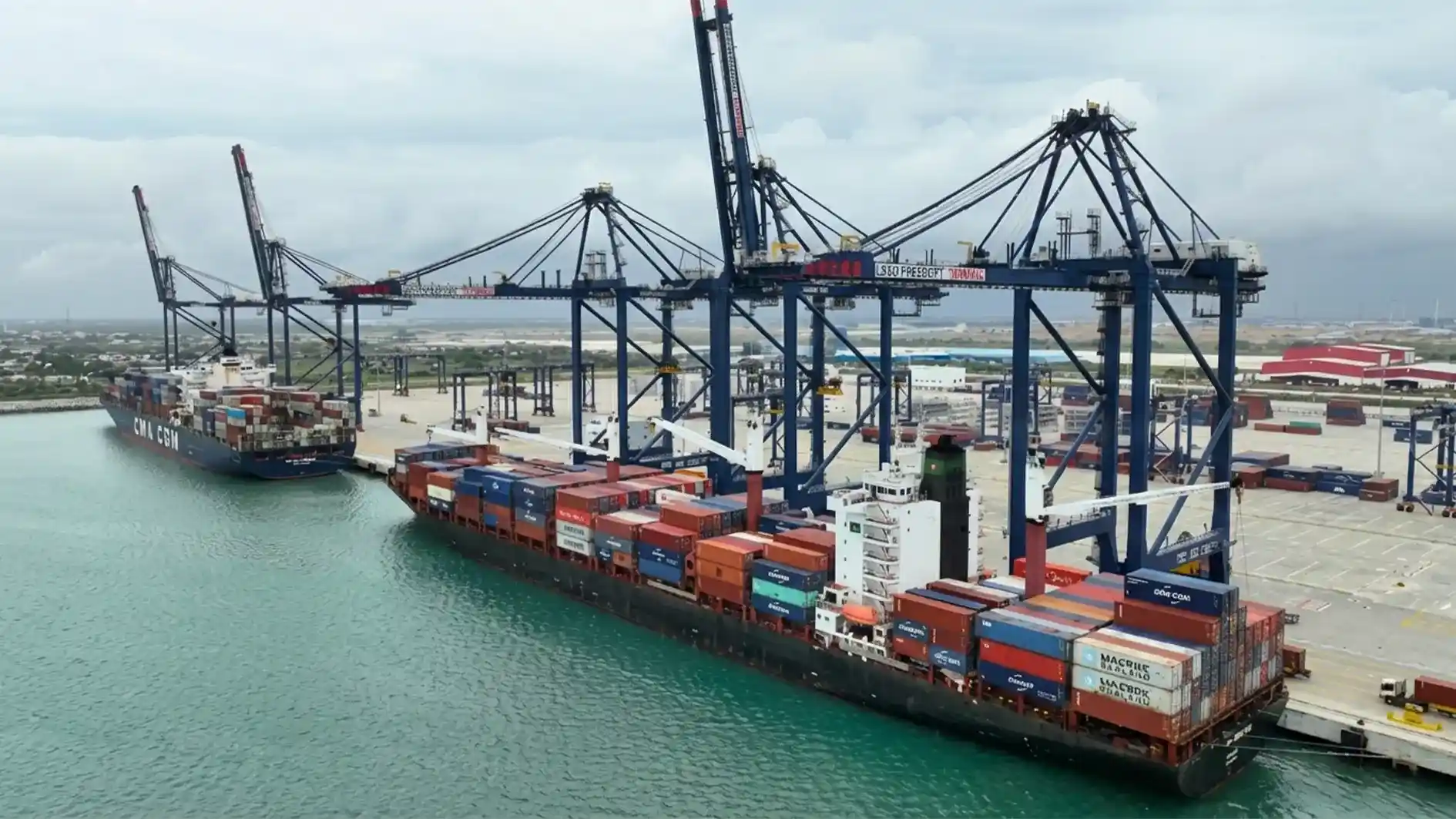In a decisive move to foster a more conducive business environment, Zimbabwe’s government has announced an extensive review of taxes and regulatory fees that will be completed within the next six months. The overhaul aims to cut costs for businesses by reducing some fees by half and eliminating others entirely, as part of a broader effort to simplify the licensing system and remove bureaucratic barriers. This initiative comes amid growing concerns from industry leaders that excessive administrative costs are hampering economic growth and stifling investment.
A Bold Step Toward Economic Revitalisation
During the first Cabinet meeting of the year, President Emmerson Mnangagwa emphasized that taxes, licenses, permits, and regulations should facilitate economic development rather than hinder progress. In a statement that resonated across the nation, the President directed his administration to expedite the elimination of excessive regulations and punitive administrative costs imposed by various government ministries and agencies. “We need to remove the red tape that makes doing business in Zimbabwe prohibitively expensive,” he declared, signaling a commitment to streamlining the process for companies large and small.
The decision follows mounting pressure from business groups and stakeholders who have long criticized the country’s intricate regulatory framework. Currently, businesses in Zimbabwe face a labyrinth of permits and fees, with many having to secure multiple licenses from different authorities. For example, a supermarket in Harare may need to obtain over 30 different licenses and permits—including health and safety permits, environmental certifications, fire safety clearances, and sector-specific approvals—to remain fully compliant. Such a burdensome system has resulted in excessive operational costs that not only discourage domestic investment but also hamper the country’s competitiveness on the international stage.
The Planned Overhaul: What It Entails
The government has established a high-level committee to review the current system of taxes and regulatory fees. According to Finance, Economic Development and Investment Promotion Minister Professor Mthuli Ncube, the committee’s mandate is to determine which fees should be reduced or scrapped entirely. “The idea is to see which of these taxes and regulatory fees ought to be reduced or scrapped, to make it easier for businesses to do business,” Professor Ncube explained in an interview with The Sunday Mail. He added that while taxes are essential for revenue collection, the focus of the review is on regulatory fees—often collected by specific agencies—which add significantly to the cost of doing business.
Under the proposed reforms, many fees will be slashed by 50 percent. Some fees may even be eliminated, with the overarching goal of reducing the overall number of steps required to set up and operate a business in Zimbabwe. Minister Ncube noted, “Our view is that in the next six months we will make progress. By July or August this year, we should be able to have definitive information as to which fees can be cut or reduced.”
Impact on Specific Sectors
The retail sector, in particular, has borne the brunt of Zimbabwe’s complicated tax system. A report by the Confederation of Zimbabwe Retailers (CZR) revealed that excessive licensing requirements are placing a heavy financial and administrative burden on retailers, especially small and medium enterprises (SMEs). For instance, a retail supermarket in Harare must secure multiple licenses from the City of Harare. Specific fees include a bakery license costing US$703 annually, a butchery license at US$649, a food purveyor permit at US$649, and a food takeaway license costing an additional US$649. Other fees include a bottle store permit at US$504, a financial services license at US$564, a health report at US$575, and a shop license at US$564.
Furthermore, beyond municipal fees, supermarkets and other businesses are required to comply with national regulatory demands. The Procurement Regulatory Authority of Zimbabwe mandates annual licenses for various product categories—ranging from groceries and stationery to corporate gifts and packaging materials—each priced at US$120. Environmental regulations further add to the financial burden; for example, the Environmental Management Agency imposes annual fees for generator emissions permits (US$152.25 for the green emissions permit and US$136.50 for the blue emissions permit). Other costs include a bottle store license required by the Ministry of Local Government and Public Works (US$110) and a wholesale permit at US$800, as well as a US$305 fee imposed by the Zimbabwe Tourism Authority for certain businesses.
Additionally, some businesses must pay an annual fee of US$350 to the Zimbabwe Council of Copyrights and quarterly fees of US$105 to the Zimbabwe National Road Administration for selling motor vehicle accessories. Collectively, these costs contribute to a challenging operating environment, driving some formal retailers out of business while informal traders—who often bypass these regulations—gain a competitive edge.
The Broader Economic Context
Zimbabwe’s economy has long grappled with high operational costs that hinder economic development. According to various industry reports and statements from business leaders, the excessive number of regulatory licenses has been a major barrier to growth. The situation is compounded by other factors such as high rental costs, salaries, utility expenses, and additional overheads—all of which add up to create a challenging business environment.
In comparison to other countries in the region, Zimbabwe’s regulatory burden is significantly heavier. In South Africa, for instance, a retail outlet requires a maximum of eight licenses to operate legally. In Rwanda, a restaurant needs only four permits. These stark differences highlight the need for Zimbabwe to streamline its regulatory processes in order to remain competitive and attract both domestic and foreign investment.
Professor Ncube highlighted that the government’s plan is to benchmark Zimbabwe’s licensing and tax system against regional and international standards. “We will streamline the taxes; we will cut out some of them; we will reduce the number of steps required to set up and run a business; and reduce the number of licenses,” he said. This benchmarking exercise is expected to not only lower costs for businesses but also improve the overall ease of doing business in the country—a critical factor for economic growth and investor confidence.
Government Initiatives and Public-Private Dialogue
In recent months, the government has taken several steps to engage with the private sector and address concerns about the high cost of regulatory compliance. High-level meetings with industry leaders, business associations, and retail groups have been convened to gather insights and suggestions for reform. The Confederation of Zimbabwe Retailers, for example, has been vocal about the need to reduce the number of licenses and simplify the regulatory process. CZR president Mr. Denford Mutashu emphasized that apart from licensing fees, other costs such as high rentals, salaries, and utilities further burden businesses. “In addition to licensing fees that exceed US$15,000 annually, retailers must also cover rental costs, which are charged exclusively in foreign currency,” he explained.
The government’s willingness to engage in dialogue with the private sector is seen as a positive sign. By involving business leaders in the review process, policymakers hope to craft reforms that are practical, targeted, and capable of addressing the root causes of high operational costs. The establishment of the high-level committee is expected to serve as a platform for such dialogue, ensuring that the concerns of industry stakeholders are adequately reflected in the final recommendations.
Expected Benefits of the Reforms
The anticipated reduction in taxes and regulatory fees is expected to yield multiple benefits for Zimbabwe’s economy:
- Lower Operational Costs: Reducing licensing fees and simplifying regulatory processes will lower the cost of doing business, making it easier for both established companies and new entrants to operate profitably.
- Increased Competitiveness: With lower overhead costs, formal businesses will be better positioned to compete with informal traders, reducing market distortions and promoting fair competition.
- Enhanced Investment Climate: A simplified regulatory environment is likely to attract both local and foreign investors, boosting overall economic activity and potentially leading to job creation and technology transfer.
- Stimulated Growth in SMEs: Small and medium enterprises, which form the backbone of Zimbabwe’s economy, will particularly benefit from reduced compliance costs, enabling them to focus resources on growth and innovation.
- Greater Transparency and Efficiency: Streamlining the licensing system will reduce bureaucratic red tape, leading to faster processing times, improved transparency, and more efficient government service delivery.
Challenges and the Path Forward
While the planned reforms represent a significant step in the right direction, implementing them is not without challenges. The complexity of the current regulatory framework, with its myriad fees and overlapping jurisdictions, means that a comprehensive overhaul will require coordinated efforts across multiple government departments. Furthermore, ensuring that the reforms are effectively communicated to all stakeholders is critical to avoid confusion and ensure smooth transition.
Political will and administrative capacity are also key factors that will determine the success of the initiative. The commitment demonstrated by President Mnangagwa and Finance Minister Professor Ncube is encouraging, but the government must maintain momentum and ensure that the proposed changes are implemented within the promised timeframe. Regular progress reports and public consultations may help build confidence among business leaders and the general public, fostering a sense of collective purpose in achieving a more business-friendly environment.
Regional Comparisons and International Best Practices
Zimbabwe’s move to reduce regulatory burdens is not unique in the region. Many African nations have recognized the importance of streamlining business processes to stimulate growth. For example, Rwanda’s business environment is often lauded for its ease of doing business, thanks in large part to its simplified licensing and regulatory framework. South Africa, despite being more developed, also continuously reviews and adjusts its regulatory policies to maintain competitiveness.
By benchmarking against regional leaders and international best practices, Zimbabwe aims to create a system that not only reduces the number of steps required to start and run a business but also aligns with global standards. This alignment is expected to enhance the country’s attractiveness as an investment destination and support broader economic reforms.
The Broader Impact on Zimbabwe’s Economy
Reducing the number and cost of licenses is expected to have a ripple effect across Zimbabwe’s economy. Lower operational costs can lead to increased business profitability, which in turn may result in higher levels of investment in innovation, infrastructure, and workforce development. As businesses become more competitive, there is also the potential for job creation and an overall improvement in living standards.
The retail sector, which has been disproportionately affected by the current regulatory burden, is likely to see immediate benefits. Reduced licensing fees and simplified processes will ease the financial strain on retailers, particularly SMEs, and allow them to invest more in expansion and quality improvements. In the long term, this could lead to a more dynamic and resilient retail market, better able to serve consumers and compete with informal sectors.
Looking Ahead
The upcoming six-month review period is critical for the future of Zimbabwe’s business environment. The outcomes of the review will determine the extent to which the government can simplify regulatory processes and lower operational costs for businesses. Early indications from industry stakeholders are cautiously optimistic, with many hoping that the reforms will bring much-needed relief to a sector that has long struggled under the weight of excessive fees and bureaucratic red tape.
As the government works to finalize its recommendations, ongoing dialogue with the private sector will be essential to ensure that the reforms are both effective and sustainable. By striking the right balance between necessary revenue collection and fostering an environment conducive to growth, Zimbabwe can pave the way for a more vibrant and competitive economy.
Conclusion
Zimbabwe’s decision to review and revise its taxes and regulatory fees over the next six months represents a bold and necessary step toward revitalizing the business environment. With a focus on reducing costs, streamlining processes, and aligning with regional and international best practices, the government’s initiative is set to ease the financial pressures on businesses, enhance competitiveness, and stimulate economic growth. As the high-level committee works to craft actionable recommendations, the success of these reforms will be closely watched by industry stakeholders, investors, and the broader public.
The planned reductions—whether by halving certain fees or eliminating others altogether—could transform Zimbabwe’s regulatory landscape, making it significantly easier to start and run a business. Such changes are expected to boost investor confidence, attract new ventures, and ultimately contribute to a more robust and diversified economy. In a context where high compliance costs have long stifled growth, these reforms offer a promising pathway to a more prosperous future for Zimbabwe.
Ready to take your career to the next level? Join our dynamic courses: ACCA, HESI A2, ATI TEAS 7 , HESI EXIT , NCLEX – RN and NCLEX – PN, Financial Literacy!🌟 Dive into a world of opportunities and empower yourself for success. Explore more at Serrari Ed and start your exciting journey today! ✨
photo source : Google
By: Montel Kamau
Serrari Financial Analyst
20th March, 2025
Article, Financial and News Disclaimer
The Value of a Financial Advisor
While this article offers valuable insights, it is essential to recognize that personal finance can be highly complex and unique to each individual. A financial advisor provides professional expertise and personalized guidance to help you make well-informed decisions tailored to your specific circumstances and goals.
Beyond offering knowledge, a financial advisor serves as a trusted partner to help you stay disciplined, avoid common pitfalls, and remain focused on your long-term objectives. Their perspective and experience can complement your own efforts, enhancing your financial well-being and ensuring a more confident approach to managing your finances.
Disclaimer: This article is for informational purposes only and does not constitute financial advice. Readers are encouraged to consult a licensed financial advisor to obtain guidance specific to their financial situation.
Article and News Disclaimer
The information provided on www.serrarigroup.com is for general informational purposes only. While we strive to keep the information up to date and accurate, we make no representations or warranties of any kind, express or implied, about the completeness, accuracy, reliability, suitability, or availability with respect to the website or the information, products, services, or related graphics contained on the website for any purpose. Any reliance you place on such information is therefore strictly at your own risk.
www.serrarigroup.com is not responsible for any errors or omissions, or for the results obtained from the use of this information. All information on the website is provided on an as-is basis, with no guarantee of completeness, accuracy, timeliness, or of the results obtained from the use of this information, and without warranty of any kind, express or implied, including but not limited to warranties of performance, merchantability, and fitness for a particular purpose.
In no event will www.serrarigroup.com be liable to you or anyone else for any decision made or action taken in reliance on the information provided on the website or for any consequential, special, or similar damages, even if advised of the possibility of such damages.
The articles, news, and information presented on www.serrarigroup.com reflect the opinions of the respective authors and contributors and do not necessarily represent the views of the website or its management. Any views or opinions expressed are solely those of the individual authors and do not represent the website's views or opinions as a whole.
The content on www.serrarigroup.com may include links to external websites, which are provided for convenience and informational purposes only. We have no control over the nature, content, and availability of those sites. The inclusion of any links does not necessarily imply a recommendation or endorsement of the views expressed within them.
Every effort is made to keep the website up and running smoothly. However, www.serrarigroup.com takes no responsibility for, and will not be liable for, the website being temporarily unavailable due to technical issues beyond our control.
Please note that laws, regulations, and information can change rapidly, and we advise you to conduct further research and seek professional advice when necessary.
By using www.serrarigroup.com, you agree to this disclaimer and its terms. If you do not agree with this disclaimer, please do not use the website.
www.serrarigroup.com, reserves the right to update, modify, or remove any part of this disclaimer without prior notice. It is your responsibility to review this disclaimer periodically for changes.
Serrari Group 2025
















